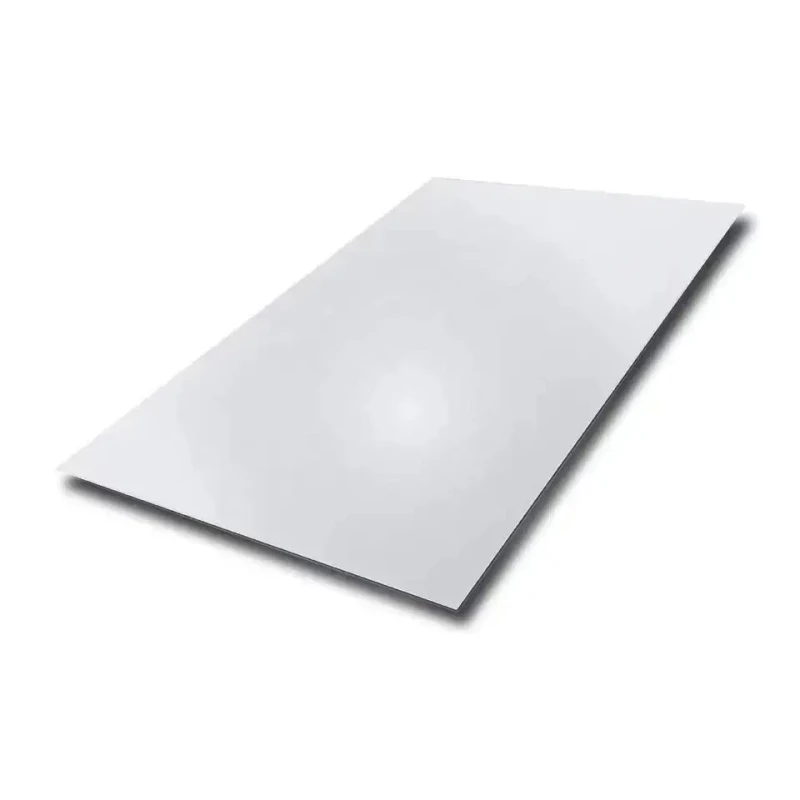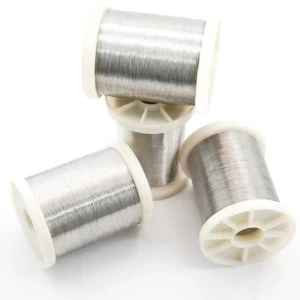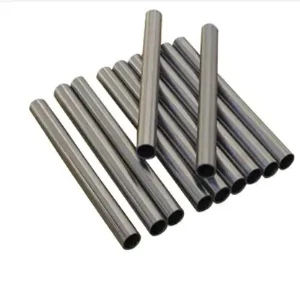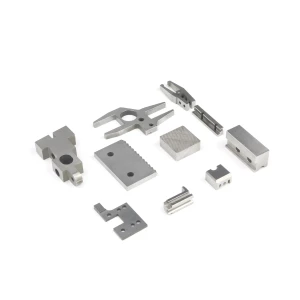| Product Name | ASTM B393 C103 Niobium plate/sheet/bar/tube/pipe |
| Materials | Pure Niobium and Niobium Alloy |
| Shape | plate,sheet,bar,tube,pipe |
| Standard | ASTM B393 |
| Dimensions | Customized |
| Application | Electronic industry, steel industry, chemical industry, optics, gemstone manufacturing, superconducting technology, aerospace technology and other fileds |
characteristic:
1. High melting point: Similar to pure niobium, niobium-hafnium alloy also has a very high melting point and is suitable for high temperature applications.
2. Good corrosion resistance: Niobium-hafnium alloy has good corrosion resistance to a variety of acids and alkalis.
3. Excellent mechanical properties: Alloys usually have better strength and hardness than single metals, especially in high-temperature environments.
4. Superconductivity: Depending on the ratio of alloy components, niobium-hafnium alloys may retain the superconducting properties of niobium.
5. Good biocompatibility: Both niobium and hafnium are elements with good biocompatibility and are suitable for medical purposes.
application:
1. Nuclear industry: Due to its excellent neutron transmission and resistance to radiation damage, niobium-hafnium alloy can be used in control rods and structural materials of nuclear reactors.
2. Aerospace: used as high temperature resistant components in spacecraft and rocket engines.
3. Electronic industry: used in high-performance capacitors, electron tubes and other electronic devices.
4. Medical devices: used to manufacture implantable medical devices, such as artificial bones, stents, etc.
5. Chemical engineering: As a material for chemical reactors and pipelines, utilizing its high temperature resistance and corrosion resistance properties.
6. Superconducting magnets: Superconducting magnets used in particle accelerators and magnetic resonance imaging (MRI) equipment.
7. Metallurgical industry: used as alloy additive to improve the properties of other metal alloys.
What are the applications of niobium-hafnium plates (C103)in the nuclear industry?
In the nuclear industry, Niobium-Hafnium Plate (C103 Plate)or alloy has the following important applications due to its unique physical and chemical properties:
1. Control rod materials: In nuclear reactors, control rods are used to regulate reaction rate and power. Niobium-hafnium alloy can be used as one of the control rod materials because of its good neutron absorption ability.
2. Neutron shielding and structural materials: Niobium-hafnium alloys have good transmittance to thermal neutrons and are resistant to radiation damage, so they are suitable for use as neutron shielding materials or structural components in nuclear reactors.
3. Fuel cladding materials: In certain types of nuclear fuel designs, niobium-hafnium alloys may be considered as cladding materials for the fuel elements to provide mechanical support and protect the fuel from corrosion and wear.
4. Supercritical water coolant systems: In fourth-generation nuclear reactor technologies, such as supercritical water coolant reactors (SCWR), niobium-hafnium alloys may be used to create components capable of operating in high-temperature and high-pressure water.
5. Nuclear-grade pipes and fittings: Due to their high temperature resistance and corrosion resistance, niobium-hafnium alloys can be used to manufacture pipes, valves and other fluid handling system components in nuclear power plants.
6. Isotope production: Niobium-hafnium alloys may also be used to create target materials for the production of radioactive isotopes for medical and industrial use.
7. Plasma-facing materials: In fusion reactor research, niobium-hafnium alloys may serve as candidate materials for making inner wall components that face high-temperature plasmas.
It is important to note that the use of niobium-hafnium alloys in the nuclear industry depends on many factors, including the alloy's specific composition, microstructure, irradiation stability, and cost-benefit ratio. In addition, these applications require materials that can withstand extreme environments, including high temperatures, high pressures, strong radiation fields, and the flow of high-energy neutrons. Therefore, the development and use of niobium-hafnium alloys require rigorous materials science and engineering technical support.
We have more categories for you. lf you can't find the products you want above,just fill in the form and tell us whatproducts you want to import from China.
















